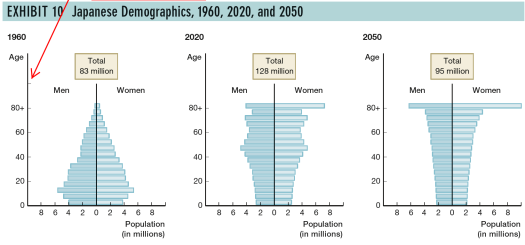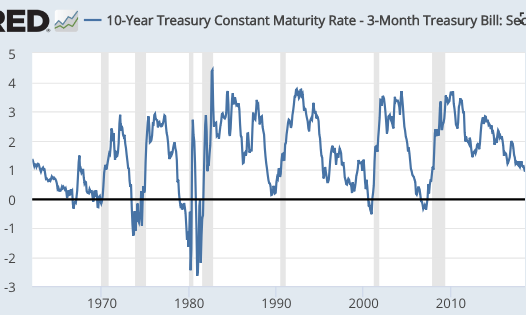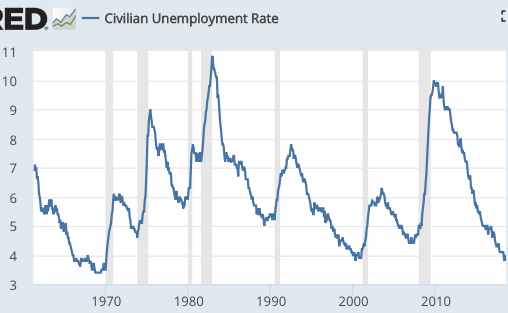A commenter named Ted asked me some interesting questions:
Topics/prompts that I’d be interesting in reading your thoughts on:
-What determines the risk-free rate?
-Where have you found meaning in life?
-How do you think historians will look back on this period?
-What will money look like in 100 years? In 1,000 years? In 10,000 years?
-What’s a book or TV show or movie or podcast you liked? Why?
-How do you fight against selection bias as you consume information about the world?
-What are topics we should be talking about more?
-Maybe a high-level tour through periods in history that illustrate something about monetary policy (aimed at people like me who are too lazy to read books where this already written down)
-What are topics you wish you knew more about?
-What are questions that are both important and difficult to answer?
-What constitutes your information diet? What sources of information do you strongly recommend?
-More posts on how public opinion isn’t real (for me, this was a big takeaway from your writing)
-Thoughts on macro hedge funds
-How you have thought about death and how you wish you thought about death
-Questions that you have for your readers
That gives me ammunition for a number of “Ted talks”. I’ll start with meaning, as I’ve recently been reading a book on psychedelics that touches on that subject.
Let me begin by noting that I often have a sort of “inside view” and an “outside view”. Thus my inside view is, “of course I have free will” and my outside view is, “of course free will doesn’t exist.” Similarly, my inside view of meaning is probably not too dissimilar from the views of others, while my outside view is that meaning doesn’t exit. Life is just one damn mental state after another.
With free will, my outside view is not just that free will doesn’t happen to exist, but that something like that can’t possibly exist. Similarly, my outside view is that meaning can’t possibly exist. Since my outside view is uninteresting, and a bit depressing, I’ll focus the rest of my post on my inside view.
Because of my outside view, I prefer not to talk about “finding meaning”, as if there is something out there to me found. Rather I’d prefer to say “seeing meaning”, which implies meaning occurs in our minds. I’ve long believed that the very young see more meaning in life than older people, and that meaning gradually drains away as you age. Meaning is also more likely to be visible in dreams, and (I’m told) in psychedelic trips on LSD or mushrooms.
This quote from a book by Karl Knausgaard nicely captures the way meaning drains away from life as one ages:
You could still buy Slazenger tennis rackets, Tretorn balls, and Rossignol skis, Tyrolia bindings and Koflach boots. The houses where we lived were still standing, all of them. The sole difference, which is the difference between a child’s reality and an adult’s, was that they were no longer laden with meaning. A pair of Le Coq soccer boots was just a pair of soccer boots. If I felt anything when I held a pair in my hands now it was only a hangover from my childhood, nothing else, nothing in itself. The same with the sea, the same with the rocks, the same with the taste of salt that could fill your summer days to saturation, now it was just salt, end of story. The world was the same, yet it wasn’t, for its meaning had been displaced, and was still being displaced, approaching closer and closer to meaninglessness.
Of course there are also some consolations that come with age.
Compared to most people, I probably find less meaning in success and fame, and more in art. At least that’s how it seems to me. I’m probably about average for seeing meaning in friends and family (although given my Northern European cultural heritage, perhaps a bit less than average for family.)
During my career, I noticed that some colleagues cared a lot about things like promotions, whereas I didn’t care at all. I did get some satisfaction from the positive press I got in September 2012, but probably less than most people would. I’m not ambitious in a career sense. If given the opportunity to be Fed chair, or a senator from California, or CEO of Goldman Sachs, I’d immediately turn down the opportunity. If not for this Mercatus position, I’d already be retired—at age 62. I’d rather make $20,000/year and have the health I had at age 31, than $200,000/year and have the health I have today—and I don’t even have any serious health problems, just chronic annoyances. That’s why the income inequality debate doesn’t really resonate with me; it just doesn’t seem that important. (That’s my impression; I’m not trying to defend it.) On the other hand, extreme poverty in developing nations such as North Korea seems like by far the most important problem in the world.
I also find much less meaning that usual in ceremonies such as funerals, weddings, graduations and other such events. I’m not a social person.
When I was a young academic, my research was meaningful to me. As I got older, I realized that people simply didn’t care and it lost meaning. What made my depression book so hard to write is that I did it after I’d become disenchanted, after I realized the book would be ignored. Fortunately, the hardest part (all the research) was done by the time I reached that view, but it was still an agonizing process to write the book.
Conversely, I got a lot of meaning out of a brief summer course I taught at Cato this summer. I was great seeing younger students from really good schools that were interested in market monetarist ideas. My blog also gave me meaning, especially during the early years when I still had new things to say and the readership was larger and more engaged. I still have modest hopes for my blog book, but I don’t think book length projects are my forte. If I were actually able to influence Fed policy, that would seem meaningful to me.
For me, the greatest meaning in life comes from art, broadly defined to include aesthetically beautiful experiences with nature, old cities, and scientific fields like astronomy and physics. The most meaningful experience in my life might have been seeing the film 2001 at age 13. I’ve never tried LSD, but after reading about the experience it reminds me of this film, and indeed the director was someone who experimented with acid. (It might also be the only “psychedelic” work of visual art that’s actually any good. Whereas pop music from the 60s is full of good examples.)
To me, art is “real life” and things such as careers are simply ways of making money in order to have the ability to experience that real life. After art, I’d put great conversation second on the list. And the part of economics that most interests me is the ability to converse with like-minded people (such as at the Cato summer course.)
I’m sort of like a satellite dish, receptive to ideas and sounds and images. My ideal is Borges, who regarded himself more as a great reader than a great writer (of course he was both, and a great conversationalist.) I’d rather be a great reader than a great writer. I’d rather be able to appreciate great music than be able to produce it.
I’m not at all like Trump.
PS. I’ll answer some other Ted questions in later posts, here and at Econlog.






